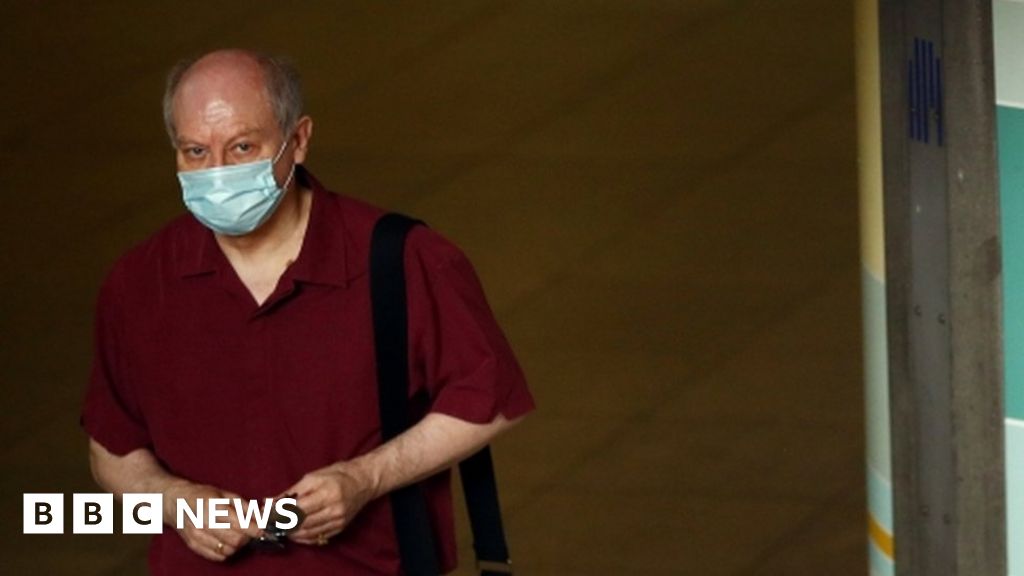
- Businesses wanting to open up to customers once more have lots to fear, including fear itself. The evidence is that many customers are wary and risk-averse.
- The tourism sector has new evidence of an appetite to stay in Scotland, but in the outdoors and countryside, avoiding crowds, restaurants, bars and indoor visitor attractions.
- There is survey evidence, commissioned by BBC Scotland, that the country is split between 'as you were' and 'all change', so companies that want lockdown eased further and faster will find they face a tough job to bring custom back.
What's stopping you getting on a bus or train? The rules, telling you that you should 'Stay At Home'? Or self-interest, because it's a risky world out there, and Covid-19 could be lurking anywhere?
To listen to governments north and south, the two are being conflated. It's in your interests, and those of the whole community and society, they're saying, that you stick to the rules that we're giving you. And for many, that suits them just fine.
The latest move into a phase of easing lockdown combines rules - new and continuing - to limit infection with a need to boost public confidence. The government has a role in both.
Even where there is limited value to wearing a face-mask, the element of reassurance they give people is cited as the main reason why they are being strongly recommended on public transport.
(But not legally required, points out Scottish Labour, with an attack on the Scottish government for leaving transport workers to enforce safety.)
Two weeks ago, 43% of people surveyed for Transport Focus thought they would be more likely to use public transport if other people were wearing a mask. That has risen to 60%, after the advice shifted to favouring face covering in confined spaces such as shops, and as people have become more used to seeing face-covering as the norm.
Friendly welcome
Other industries are throwing a lot of effort into getting an understanding of their customers' view of risk, as businesses seek to re-open. Arts companies have been keen to find out from me, and numerous others on emailing lists, the conditions under which I'd go back to a theatre or concert, and when I might be willing to start booking.
One such market research for the tourism industry, carried out by 56 Degree Insight, found in early May that potential Scottish staycationers tend to want to avoid public transport in favour of private cars. They are averse to flying overseas and busy places, and put hygiene higher up their list of priorities for their destination.
They (or we) intend to take it one step at a time, starting with day trips when allowed to. Then on to short breaks or a holiday in Scotland, spreading horizons to the rest of the UK more than Scots want to go overseas. On the survey's so-called 'desirability index', the day trip scores 71, and the overseas holiday only 44. Changed days.
Respondents liked the idea of self-contained self-catering, in caravans or camping, allowing families to cut off from other people. There's less appetite for going out for meals while renting on holiday.
The preference is for the countryside and beaches, rather than cities and towns. None of these findings will come as a surprise, but it's not good news for the immense tourism infrastructure in cities including Edinburgh, which will be without its festivals this summer.
There's reduced interest in indoor activities such as visits to arts and cultural venues. Purpose-built attractions will have less appeal, post lockdown.
Attendance at events and festivals and mixing with locals both have much less appeal now than previously.
"Given the importance of Scotland's 'friendly welcome' messaging, navigating around this will require a lot of thought," the survey compilers observe.
In general, the survey found that 11% of people are nervous and very wary of a return to travel, while 17% of those surveyed said nothing has changed, and they'll return to the way things were before.
Not going out
We've been asking similar questions of the public, or at least Ipsos Mori was doing so last week on behalf of BBC Scotland. The results of that survey support that view that people are roughly evenly split on whether things have all changed, or they're going to be much the same.
Do you expect to go back to the things you did before, once restrictions are lifted? The 'as you were' side edged it by 49% to 48% for 'unlikely'.
Do you expect to go back to restaurants and bars? Only 38% say that's likely, rising to 52% for adults aged up to 34. Think about that: of young adults, only half are likely to go out to bars and restaurants.
Enticing more of them to do so is not going to be straightforward.
Nor is drawing people back into shops when the experience starts with a queue and instructions to shop alone, in an environment full of bright yellow warnings of invisible risk.
Persuading the government to let business premises open up for trading is only the first part of the challenge. It's the relatively straightforward one.
Getting over customer hurdles of anxiety and fear will be more complex and nuanced, and doing so will surely take a lot longer.
"danger" - Google News
May 29, 2020 at 12:50AM
https://ift.tt/3cd4Cfk
Stranger Danger - BBC News
"danger" - Google News
https://ift.tt/3bVUlF0
https://ift.tt/3f9EULr
No comments:
Post a Comment